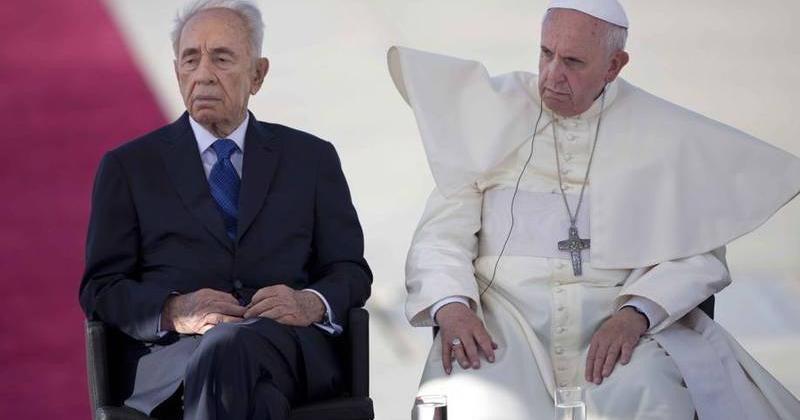Pope Francis’ “religious” and “spiritual” visit sent out two powerful messages to the Israeli and Palestinian people, the Middle East and the international community yesterday. The “creativity” of the Pope’s gestures is not in any way out of line with the objectives of this pilgrimage: praying in silence in front of a wall and inviting the leaders of two States to the Vatican to pray for peace does not imply a road map is being set out or political and diplomatic strategies imposed.
It is important to note that on 13 May 2009, in the very same place, Benedict XVI, had said: “it is tragic to still see walls being erected.” Ratzinger had hoped that the reinforced concrete barrier would come down in the future. It protected the West Bank and kept Israeli’s safer from terrorist attacks. But it also divided families and entire communities and the course along which it was built, made any kind of movement problematic and made it even harder for a Palestinian State to be created. Francis did not mention this in his speeches as his predecessor had. He “spoke” in his own way, with a silent and eloquent gesture.
This may have been the first unscheduled meeting on the Pope’s agenda for his Palestinian visit, Francis’ announcement of a meeting in the Vatican with Peres and Abu Mazen was a whole different kettle of fish. Francis announced this meeting in order to help move things along in the stagnant Palestinian-Israeli peace process. The Pope was keen to hold the meeting during this trip, as an important gesture of peace. But it was not possible given the complex internal political chemistry between President Peres and Prime Minister Benjamin Netanyahu and between President Abu Mazen and Hamas.
Francis did not give up on his “dream” and in a gesture similar to that of the day of fasting and prayer for peace in Syria in September 2013, the Pope’s invitation to the two leaders to visit the Vatican, was accepted by both parties. The meeting will most likely take place on 6 June in the Vatican. Time is tight as Peres’ presidential mandate will end at the end of July. “Our hand is stretched out in peace and will continue to be stretched out in peace, and we shall seek the right path to achieve it," the Israeli president said as he greeted Francis at Tel Aviv airport. “All of us - especially those placed at the service of their respective peoples - have the duty to become instruments and artisans of peace, especially by our prayers,” Francis said, extending his invitation. “Building peace is difficult, but living without peace is a constant torment.” “All men and women of this land, and the world at large, are asking us to work towards peace,” the Pope recalled.
